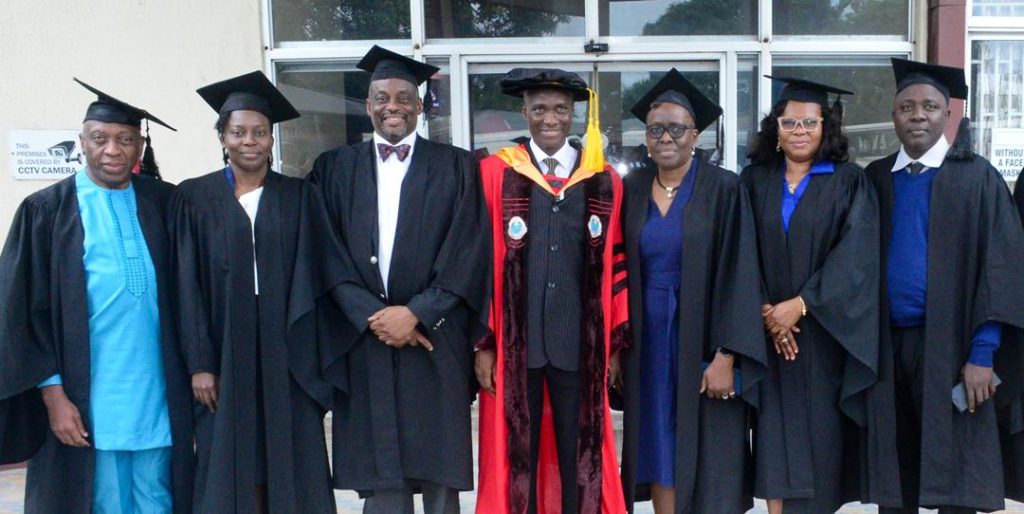Professor Mohammed Usman, a Process Systems Engineering expert at the University of Lagos, challenges the conventional focus on carbon emissions as the primary driver of the climate crisis. In his inaugural lecture, he argues that the root cause lies in irresponsible and excessive resource consumption across all sectors of society. Usman contends that the focus should shift from demonizing carbon to optimizing resource utilization efficiency. He emphasizes the critical need to determine the minimum resources required for any given task before deployment, advocating for a mindset of minimizing waste and maximizing efficiency in individual, industrial, and governmental practices. His core argument centers on the idea that extravagance and self-indulgence in resource use, regardless of the specific resource, fuels the climate crisis. Instead of simply transitioning from one resource to another, like from fossil fuels to renewables, he advocates for a fundamental shift in our approach to resource management. He stresses the importance of “killing extravagance” in all its forms, urging a paradigm shift towards responsible consumption and production as outlined in the UN’s Sustainable Development Goal 12.
Usman proposes a multi-pronged approach to address this issue. He advocates for robust policy integration across all levels of government, designed to synergize efforts and prevent the unintended consequence of simply shifting environmental problems from one resource to another. He calls for periodic resource footprint assessments of both current and proposed policies to identify potential synergies and optimize resource utilization. This framework necessitates the development of enabling legislation to provide a legal backbone for these initiatives. Crucially, Usman suggests that the United Nations Climate Change Commission reassess its strategies, recognizing carbon as a valuable resource to be utilized efficiently, rather than a villain to be eliminated. This perspective challenges the prevailing narrative of decarbonization, advocating instead for “100% carbon utilization” or “recarbonization.” This approach, he argues, should be extended to other resources used in renewable energy technologies, such as silicon and lithium, to prevent the emergence of new resource-related environmental challenges.
His argument emphasizes the crucial link between resource efficiency and sustainability, asserting that true sustainability lies not in substituting one resource for another, but in optimizing the use of all resources. He calls for a fundamental shift in mindset, urging individuals, industries, and governments to prioritize resource efficiency and minimize waste. This requires developing the capacity and capability to accurately assess resource needs and implement efficient utilization strategies. This approach, Usman believes, addresses the root cause of the climate crisis – overconsumption – rather than merely treating the symptoms. His framework encompasses a holistic perspective, integrating individual responsibility, technological advancements, and policy interventions to create a sustainable future. He underscores the urgency of addressing this issue, advocating for swift and decisive action to curb excessive resource consumption and promote responsible resource management.
Furthermore, Usman advocates for a more balanced approach to evaluating environmental impact, extending the scrutiny applied to carbon emissions to other resources used in renewable energy technologies. He argues that focusing solely on decarbonization while overlooking the potential environmental consequences of mining and processing materials like silicon and lithium for solar panels and batteries is shortsighted. By advocating for “100% carbon utilization” or “recarbonization,” he challenges the prevailing narrative that demonizes carbon, promoting instead a perspective that views it as a resource to be managed responsibly. This approach necessitates a more comprehensive understanding of the entire life cycle of resources used in energy production, ensuring that the transition to renewable energy does not merely shift the environmental burden from one resource to another.
The professor also emphasizes the crucial role of academia in addressing the climate crisis and achieving sustainable development. He highlights the importance of knowledge generation and dissemination in promoting responsible resource management and calls for greater recognition and support for academic institutions. He laments the poor remuneration of lecturers and the declining state of education in Nigeria, describing it as an emergency requiring urgent intervention. Usman argues that academia should be considered the “fourth arm” of government, placed on par with the judiciary in terms of status and remuneration. This elevation, he believes, would empower academic institutions to effectively contribute to policy development and implementation, fostering a more sustainable future. By investing in education and research, he argues, the country can build the necessary capacity to address complex environmental challenges.
In conclusion, Professor Usman’s lecture offers a fresh perspective on the climate crisis, shifting the focus from solely reducing carbon emissions to promoting responsible resource management across the board. He challenges the prevailing narrative and advocates for a more holistic and integrated approach to achieving sustainability. He calls for a paradigm shift in our consumption habits, emphasizing the need to curb extravagance and optimize resource utilization at individual, industrial, and governmental levels. His framework emphasizes the interconnectedness of resource efficiency, policy integration, and technological advancement in creating a sustainable future. He urges immediate action, advocating for legislative support, policy reforms, and a fundamental change in mindset to address the root causes of the climate crisis and build a more sustainable and resilient world.














